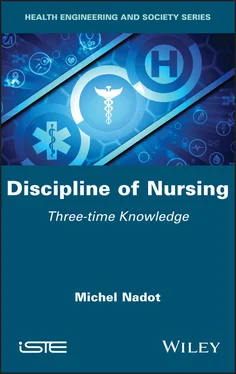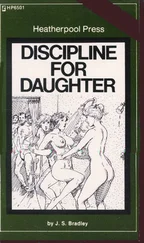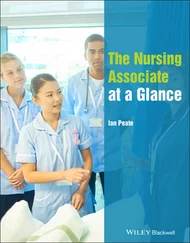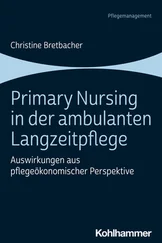Michel Nadot - Discipline of Nursing
Здесь есть возможность читать онлайн «Michel Nadot - Discipline of Nursing» — ознакомительный отрывок электронной книги совершенно бесплатно, а после прочтения отрывка купить полную версию. В некоторых случаях можно слушать аудио, скачать через торрент в формате fb2 и присутствует краткое содержание. Жанр: unrecognised, на английском языке. Описание произведения, (предисловие) а так же отзывы посетителей доступны на портале библиотеки ЛибКат.
- Название:Discipline of Nursing
- Автор:
- Жанр:
- Год:неизвестен
- ISBN:нет данных
- Рейтинг книги:5 / 5. Голосов: 1
-
Избранное:Добавить в избранное
- Отзывы:
-
Ваша оценка:
- 100
- 1
- 2
- 3
- 4
- 5
Discipline of Nursing: краткое содержание, описание и аннотация
Предлагаем к чтению аннотацию, описание, краткое содержание или предисловие (зависит от того, что написал сам автор книги «Discipline of Nursing»). Если вы не нашли необходимую информацию о книге — напишите в комментариях, мы постараемся отыскать её.
Discipline of Nursing — читать онлайн ознакомительный отрывок
Ниже представлен текст книги, разбитый по страницам. Система сохранения места последней прочитанной страницы, позволяет с удобством читать онлайн бесплатно книгу «Discipline of Nursing», без необходимости каждый раз заново искать на чём Вы остановились. Поставьте закладку, и сможете в любой момент перейти на страницу, на которой закончили чтение.
Интервал:
Закладка:
According to Nadot, it seems that clinical research is more developed at the expense of basic nursing research. This is due, according to him, to the valorization of the practical side of the profession at the expense of nursing theory and research.
However, Nadot adds that nurses’ access to university has provided access to scientific language and methods, as well as to research and epistemological thinking, which constitute a pillar of recognition for the nursing discipline. It is therefore incumbent on nurses, researchers and university professors to take responsibility for the direction of our discipline, because the profession is in crisis and does not seem to be able to rely on legislation or its theorists to get out of it. According to Nadot, only basic research, which has long been absent from nursing faculties, will be able to do a conceptual and historical clean-up, revise our linguistic codes and produce knowledge specific to our discipline. This will create a paradigm shift that will allow disciplinary identity to be enhanced.
Several factors will contribute to this conceptual clean-up. According to Nadot, the fact of being part of a reflexive science, or rather I would say a “reflexive practitioner” attitude, of taking a distance, having a critical look to examine the existing knowledge, not only at the individual level but also at the collective level, from experience, from the historical roots of our profession, as well as through the destructuring and restructuring of our traditions, allows us to better propagate and value nursing knowledge. Hence, the role of universities to train nursing students who are not only called upon to acquire specific knowledge and know-how, but also who must prepare themselves to have a reflexive attitude and research, analysis and questioning skills in order to bring about the emergence of a disciplinary “green knowledge”. This “green knowledge” is demonstrated in this book.
Nadot’s book proposes a very original schematization of the aggregation of knowledge where disciplinary “green knowledge” forms the core of practical knowledge and is immersed in a cultural environment represented by institutional culture, healthcare culture and medical culture. According to Nadot, it should not be denied that the knowledge emanating from these three cultures is developing in such a way that it gradually comes to the moor, and masks the “green ball” at the origin of fundamental knowledge. Hence, the problem of disciplinary visibility that only basic research on the elements of the discipline, namely the environment ( Domus ), care, health and the individual/family ( Familia/Hominem ), enriches nursing knowledge. It is a matter of proving that nursing is not only a collection of knowledge borrowed from other disciplines, particularly medicine and humanities, but also that it has a distinct identity. Thus, the schematization would be more harmonious by constructing a knowledge that places the human being at the center and in continuous interaction with a changing healthcare environment.
In this book, Nadot sheds light on several factors, highlighting that our nursing science has not reached the same level compared to other existing sciences. According to him, it is a question of the female status of the profession, and the evolution of this status in our societies at different rates of development of scientific research. However, for a discipline to develop, it must be neutral, exclusive of gender, consistent and must reflect the world it came from. For Karl Popper [POP 85], for example, a discipline can only claim the status of a scientific discipline if it produces falsifiable statements, that is, statements that are capable, in the form of testable hypotheses, of being subjected to the test of experimentation.
Nadot’s book is one of the European reference works that calls on the reflexivity of nursing researchers, teachers, managers and theorists from North America, Europe, Africa and the Middle East to formulate, based on their theories and scientific statements, hypotheses that are supposed to be subjected to experimentation with the aim of attaining a consensual construction of a scientific status for the nursing discipline in the 21st Century. Let us thus take advantage of the globalization of nursing knowledge to develop a disciplinary identity that takes into account the influence of the demographic, political, economic, scientific, social, regulatory, cultural and technological environment of a constantly changing healthcare environment.
This is what makes this book innovative, a true disciplinary revolution, a call for a major paradigmatic change or better, a real conceptual clean-up to come. It calls for the construction of a clear status for the discipline, a distinct professional identity and a scientific discipline that only increases the credibility of the nursing profession, as well as the confidence of other healthcare professionals and, above all, of all the beneficiaries of the services provided by nurses in response to ever-increasing healthcare needs.
Finally, I conclude with Bachelard [BAC 83] who said that nothing is selfevident. Nothing is given, everything is built. This is the case with this book. So let us demystify and overcome the nursing myth that we currently know and build together the nursing sciences of the 21st Century!
Rima SASSINE KAZAN
Dean of the Faculty of Nursing
Saint-Joseph University of Beirut, Lebanon
August 2020
1 1Where the hospital depends on the school on a geographical, administrative and financial basis.
2 2An opposing model to the previous, where the school depends on the hospital on a geographical, administrative and financial basis.
Preface
Female caregivers 1 , and with them their knowledge or their own discipline, are still epistemologically subject to a historical cultural domination imposed at the end of the 18th Century. Nurses have few historians. Others took it upon themselves to write their own history. As the narrator of the Howard Zinn film about American popular history would say, “Until the rabbits have a historian, the story will be told by the hunters”. Can we get rid of the cliché? Of course, it is up to the discipline and its members (the rabbits) to appropriate their history and define its object. However, as Gélis pointed out, “historians of health practices were for a long time doctors anxious to write the past of their profession; the helpers, the guards, the caretakers, were in their eyes only auxiliaries. The humble, everyday life; this was not… history!” [GÉL 88]. This may partly explain why nursing professors did not take ownership of the history of their knowledge from the very beginning. As a nurse, health executive or researcher, it is not common to study history. Who would fund such studies? Why not, however, try to expose the knowledge of the past, notably by publishing this book, in order to identify what our spaces of speech and language traditions are made of? “After all, why should we deny the right of the members of a profession to take up their past for themselves, as long as they meet the requirements of historical research?” [GÉL 88].
The role and conditions favoring the emergence of the history of knowledge within the nursing profession are not always well perceived and understood, as they are difficult to access. It did not all start with Florence Nightingale! Retrieving traces of daily care presents many difficulties for the nurse historian engaged in research. These traces, too ordinary to constitute scholarly heritage, have eluded health historians until recently. Before being able to describe and interpret the world that was theirs, women caregivers were linguistically colonized by dominant cultures. In order: church, medicine and the military (Red Cross). As Gérard Noiriel rightly points out, “one of the essential forms of domination in history was between those who had the power to describe and interpret the world through writing and those who had only oral language” [NOI 18].
Читать дальшеИнтервал:
Закладка:
Похожие книги на «Discipline of Nursing»
Представляем Вашему вниманию похожие книги на «Discipline of Nursing» списком для выбора. Мы отобрали схожую по названию и смыслу литературу в надежде предоставить читателям больше вариантов отыскать новые, интересные, ещё непрочитанные произведения.
Обсуждение, отзывы о книге «Discipline of Nursing» и просто собственные мнения читателей. Оставьте ваши комментарии, напишите, что Вы думаете о произведении, его смысле или главных героях. Укажите что конкретно понравилось, а что нет, и почему Вы так считаете.












